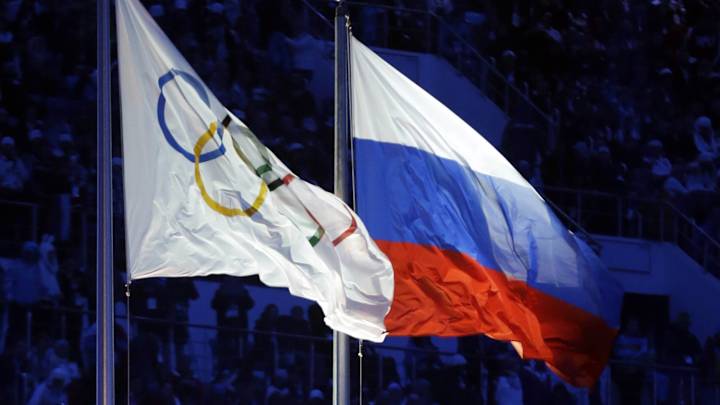IAAF issues guidelines on Russian track athletes

LONDON (AP) IAAF President Sebastian Coe on Thursday downplayed the split with international Olympic leaders over his sport's decision to bar Russian track and athletes from competing under their own flag, saying the two sides ''will work our way through these issues.''
''We have to be realistic,'' Coe told The Associated Press. ''This is a new situation. We need to work our way through this. That's what we will do.''
Coe spoke after the IAAF issued guidelines for Russian track and field athletes applying for ''exceptional'' dispensation to compete in the upcoming Rio de Janeiro Olympics.
Last Friday, the IAAF upheld its overall ban on Russian track and field athletes because of systematic doping, but also passed a rule change allowing a small number of athletes to apply to compete under a neutral flag if they can show they have been subject to reliable drug-testing outside their home country.
The International Olympic Committee, however, said after a doping summit on Tuesday that any Russian athletes approved by the IAAF would compete under their national banner in Rio.
The IAAF reiterated Wednesday that athletes meeting its special eligibility conditions ''should be able to apply for permission to compete in international competitions, not for Russia but as a neutral athlete.''
Coe insisted the IAAF and IOC would eventually be on the same page.
''These details need to be worked through,'' Coe said in a telephone interview. ''We will work our way through these issues. The task force reported on Friday, we were at the Olympic summit on Tuesday, and it's now Thursday. I don't think it's unreasonable to allow us time to work through this.''
''Both organizations left that summit on Tuesday absolutely united in one overriding determination, and that was to create a level playing field for clean athletes,'' he added.
Russian officials and athletes are contesting the IAAF ban on the track team, maintaining that ''clean'' athletes are being unfairly excluded because of the violations of others. They plan appeals to the Court of Arbitration for Sport.
The IOC said Tuesday that the IAAF has no say on which flags athletes compete under at the Olympics.
IOC President Thomas Bach said any athletes entered for the games would come under the control of the Russian Olympic Committee and compete under the national flag.
The IAAF guidelines acknowledge that any athletes meeting its conditions ''will still have to obtain an invitation to participate in the international competition(s) in question, in line with the rules of the organizers of that competition.''
The statement recognized that the IOC retains control over athletes at the games, where they are entered by their national Olympic committees. Bach stressed that the Russian Olympic Committee is not suspended.
''We create the eligibility,'' Coe said. ''It's for the IOC to invite. There's no complication about that. We will work our way through that.''
IAAF officials have said a limited number of individual Russian athletes, around a handful, would meet the guidelines to apply to compete as independents.
''They have to be out of the country, in an untainted system that we can verify is safe and secure, and free from malign influences,'' Coe said.
A three-person doping review board headed by American Robert Hersh will rule on the requests.
''My understanding is we have one application,'' Coe said.
He declined to elaborate. However, the athlete is believed to be Yulia Stepanova, the Russian whistleblower who helped expose widespread cheating in her homeland.
The IAAF said last week that Stepanova - now living and training in the United States - should be free to apply to compete as an independent athlete because she had ''made an extraordinary contribution to the fight against doping in sport.''
The IAAF guidelines on the Russians will first apply at the European Championships in Amsterdam from July 6-10. The Rio Games run from Aug. 5-21.
Among other things, applicants have to supply the IAAF with details on the extent of their contacts with officials, coaches, doctors and other officials from the Russian federation; whether any of their drug samples are currently stored or being retested; how long they have been outside the country and whether they faced ''fully adequate'' testing; and how many in-competition and out-of-competition urine and blood samples they have provided.
---
Stephen Wilson on Twitter: https://twitter.com/stevewilsonap. His work can be found at http://bigstory.ap.org/content/stephen-wilson
